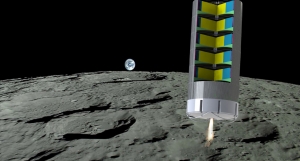Displaying items by tag: colonization
Multi-Task Logistic Module
The idea is to develop a modular logistic vehicle capable to provide in the future continuous logistic service between LEO and the Moon surface. Based on the use of a new structural concept in which the Payload cargo is retained via the use of airbag technology, the first time in Space technology, the goal is to demonstrate the structural performance of this new architecture with a scaled demonstrator to be tested in a Space laboratory. The modular characteristics will permit to launch in different missions Payload Modules and the Powered Module with orbital rendez-vous and docking, this will permit to host more propellant and send more payload mass to the Moon, as high as 6.3 Tons using advanced (restartable) LH2/LOX engine technology (at this stage even though the engine has not been identified it doesn't preclude the feasability of the concept, i.e it can be a scaled-down version of the Vinci engine). The Powered Module will mate with the Payload Modules with orbital rendezvous in LEO and once assembled the MTLM LH2/LOX engine shall provide the delta-V to go to the Moon and land. This kind of scenario that is different with respect to that of the EL3 mission has a much higher growth potential once fuel depots will be available in LEO and on the Moon surface, with the potential to guarantee a continuous logistic service between LEO and Moon. The idea is to exploit at best the availability of existing launchers such as Ariane 6. The retain of payload cargo via airbags once qualified can permit to simplify the requirements for the payload reducing its cost and this can give the opportunity to use this technology in other missions. Having airbags permanently inflated inside the Payload Module precompressing both the payload packages and the external retaining structure will permit to let the structure to work permanently in tension avoiding risks linked to buckling and this should significantly reduce the mass of the structure.

